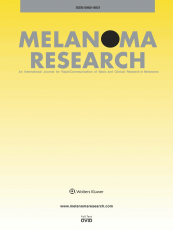RIGVIR®
RIGVIR® – the worlds first oncological virotherapy drug that is approved for treatment of cancer and introduced into clinical practice. RIGVIR® contains live, non-pathogenic and non-genetically modified enteroviruses ECHO-7.
RIGVIR® has oncotropic and oncolytic properties. It finds and infects the tumour cells. Then the virus multiplies in tumour cells and destroys them. Both of these processes are selective against tumour cells, while healthy cells are minimally affected or not affected at all.
In 2015, the medical journal “Melanoma Research” published a study showing that the patients of melanoma who had received virotherapy treatment with RIGVIR® had 4 to 6 times higher probability of survival than those patients that had not received virotherapy.
New publication in international scientific journal shows surprisingly positive results with oncolytic virus RIGVIR®.
The surprisingly positive treatment results using RIGVIR® virotherapy for patients with advanced-stage cancer were recently published in APMIS journal (Acta Pathologica, Microbilogica Et Immunologica Scandinavia). The patients of melanoma stage IV M1c, small cell lung cancer stage IIIA and histiocytic sarcoma stage IV started virotherapy with RIGVIR® within a few months after being diagnosed and are continuing this treatment. Patients have significantly exceeded the usual life expectancy of such diagnoses. After beginning the therapy, their condition stabilised and the quality of life significantly improved.
Despite research and progress in melanoma therapy, mortality rates are high and melanoma is one of the most common cancers in the Western world. Small lung cancer is one of the most aggressive lung cancer subtypes. Even though its response to chemotherapy and radiation is high, recurrence is common and long-term survival does not exceed 5%. Histiocytic sarcoma is a rare kind of cancer and only a limited number of histiocytic sarcoma cases have been described. Using current standard treatments, the survival of patients with present diagnoses is low.
In contrast, the patients mentioned above were diagnosed with cancer 3.5, 7 and 6.6 years ago and their condition has improved and has been stable for over 1.5, 6.5 and 4 years, respectively. They have been long-term treated with RIGVIR® oncolytic virotherapy starting from 1 to 2 months after the diagnosis.
These observations suggest that oncolytic virotherapy using RIGVIR® can successfully be used in long-term treatment of patients with melanoma stage IV M1c, small cell lung cancer stage IIIA, and histiocytic sarcoma stage IV.

